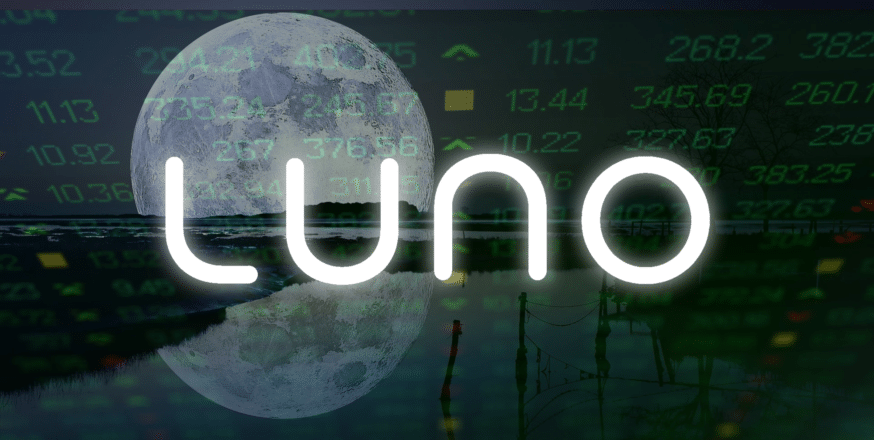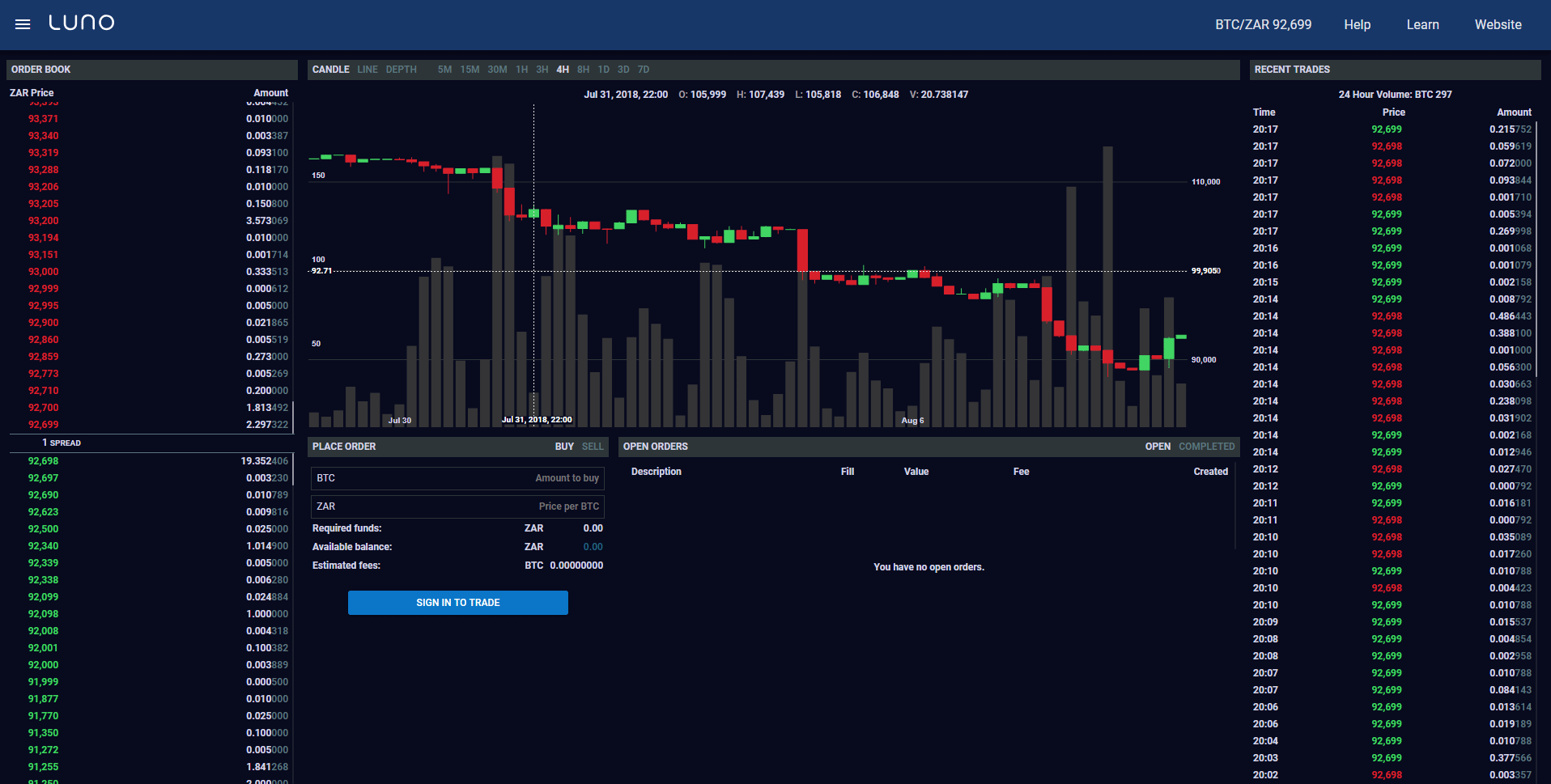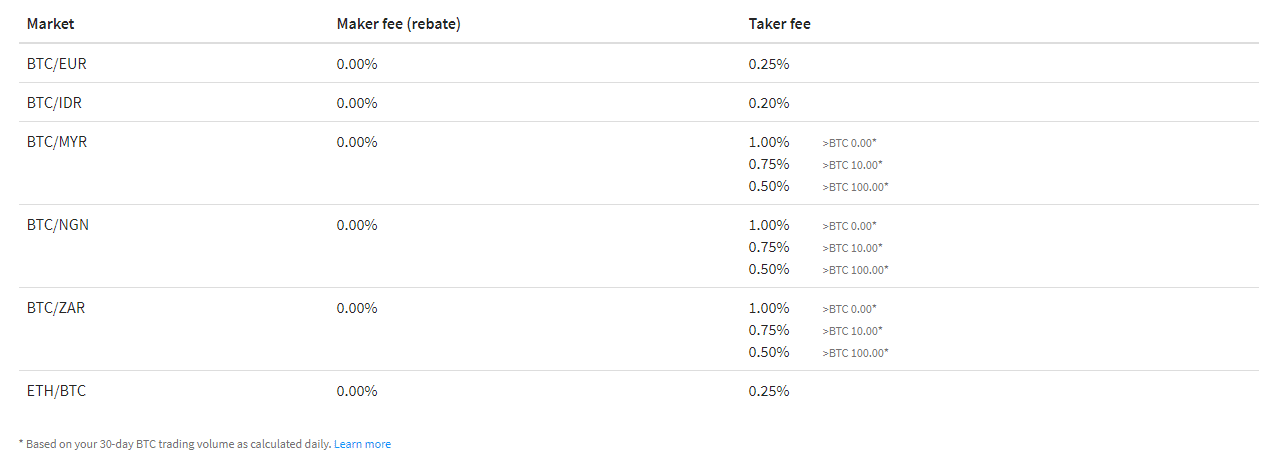
Luno, a rather fitting name for an exchange which tends to capture one of cryptocurrency’s most talked about phrases, “To the moon!”. The exchange is relatively unknown for cryptocurrency enthusiasts based in the Americas and Europe. However, in this Luno review, we’ll explore some of the regions they operate in and the benefits and drawbacks of trading with this up-and-coming cryptocurrency exchange.
Luno was founded in 2013 in South Africa and now operates in more than 40 countries around the globe. The company’s user base has grown dramatically over the last couple of years alongside the tremendous growth and adoption of Bitcoin. Luno has approximately 2 million customers and has processed over $2 billion in payments to date.
Luno Key Information
How It Works

The Luno sign-up process
Create Account
During the Luno review, we set up an account and went through the usual registration and security measures. The process was fairly simple. Luno, like most exchanges these days, will notify you of every login you make in case of any suspicious activity
Dashboard
The dashboard is fairly well organized, though not the most impressive we’ve seen compared to some other well-established players. So, if you are planning to trade immediately then enabling 2-factor authentication (2FA) in settings should be your first port of call.
In wallets, you can find access to both your fiat and cryptocurrency funds. Depositing and withdrawing funds to and from bank accounts was a piece of cake and sending and receiving funds between digital wallets was even easier, thanks of course to blockchain technology.
Luno Exchange
The Luno trading platform is quite basic compared to other platforms we’ve reviewed. You still have the usual tools available to you, however. They include the order book, simple charting, place order function and recent trades list.
Placing an order at a specific price through the order box is straightforward. However, placing a market order is not as intuitive. The best way to do this is actually clicking on the latest price in the order book or recent trades list so that you get an accurate price. This could be a potential problem for active traders looking to get in and out of positions on a regular basis.
One feature we would like to see added is the ability to buy Ethereum directly with your national currency. Currently, you have to buy Bitcoin first before exchanging it for Ethereum.

Unfortunately, the charting package does not provide long-term data for most cryptocurrency pairs. This is most likely due to Luno’s limited data feed. Keep in mind that most cryptocurrency pairs are measured in US Dollars ($) because of the Dollar’s reserve status. Consequently, the data for local currency pairs should improve over time as more users are added to the platform.
The more experienced trader may want to use an advanced trading platform such as TradingView to keep track of international prices. We have a great beginner guide on charting in TradingView when you are ready to take your trading to the next level.
Arbitrage
Arbitrage is a term used to describe different prices of the same asset in different locations. For example, if you keep track of the Bitcoin price in USD ($) on different exchanges globally you will probably find that they differ, sometimes considerably.
We noticed that the price difference for Bitcoin was quite large on Luno over some days compared to others. Therefore, traders should keep this in mind when using the Luno service. Also, remember that there is no central authority setting the international cryptocurrency prices because they are determined by supply and demand.
Supported Currencies
At this time Luno only supports accounts denominated in the following currencies:
- Euro (€)
- Indonesian Rupiah (IDR)
- Malaysian Ringgit (MYR)
- Nigerian Naira (NGN)
- South African Rand (ZAR)
Mobile Trading & Wallet App
The mobile wallet is a nice addition to the Luno toolset. The app was pretty easy to navigate and transfer funds with. The charting application, however, is similar to the desktop version in that it’s a bit too basic. The interface could do with an overhaul in future updates.

Keep in mind that in emerging markets, mobile phones far outnumber any other form of internet access. The business of the future will be conducted on-the-go with a smartphone. Exchanges which provide excellent mobile applications to their customers will have a major advantage.
Trading Fees
Luno’s trading fees are dependent on your country and supported national currency. Fees for European and Indonesian clients are quite competitive, coming in at 0.20% and 0.25% respectively. While fees for other locations are more expensive.
This is a pity because it doesn’t compare that favorably to other exchanges. These fees will almost certainly come down as the cryptocurrency industry matures and competitors arrive on the scene.

Deposit & Withdrawal Fees
Deposit and withdrawal fees are generally quite competitive. But remember that if you are transferring from crypto to your Luno crypto wallet that fees from the relevant blockchain apply. Here is an example on the Ethereum blockchain. You can also find a detailed description of the Luno fee structure on their website.
Available Cryptocurrencies
Perhaps the biggest drawback to using Luno is the limited number of cryptocurrencies available. To date, they only provide trading in Bitcoin and Ethereum. This does, however, fit the model of other well-established companies like Coinbase and Gemini. These companies prefer to trade in reputable coins and build favorable relationships with regulators.
Despite these benefits, it would probably be in Luno’s best interest to add some additional well-known coins to their offering and consequently attract new customers.
Transfer Limits
As usual, your daily transfer limits depend on your level of account verification. Level 1 has a low max cap on all withdrawals and deposits. Presumably, this will be for first-time investors looking to get their feet wet in the cryptocurrency markets.
Level 2 provides a generous deposit and withdrawal amount on a monthly basis and level 3 is for investors who trade/move large amounts of cryptocurrency on a regular basis:

Level 1 requires basic personal details while levels 2 and 3 require stricter documentation in line with KYC (Know Your Customer) regulations. Most noteworthy, Luno will need government-issued identificationand proof of address for the upper levels.
There appear to be no limits on cryptocurrency only withdrawals and deposits.
Company Trust
Through a little digging, we found that the company received mixed reviews from the crypto community due in many cases to accounts being blocked. Security has been a problem for centralized exchanges in recent years so this could be a reason that Luno is playing it very safe. In general, though, the support team has responded quickly to concerned users on several Luno review sites.
Fund Security
Luno’s security is quite solid and steps are taken on various levels:
- Storage
- The majority of customer funds are kept in cold storage or cold wallet accounts. These accounts are not constantly connected to the internet and are multi-signature so that one person never has full access to accounts
- Hot wallet (always connected to the internet) accounts also use multi-signature so that customers have instant access to Bitcoin funds if and when they need them. Furthermore, one of the keys is held by BitGo, an independent custodian for cryptocurrency accounts.
- Authentication
- Passwords are stored in hash form
- Two-factor authentication (2FA) is available for an extra layer of protection. We highly recommend enabling this option for all your cryptocurrency accounts.
- Company Principles
- All web services and communication use secure layer protocols and encryption. Also, employees do not have access to customer funds. Finally, auditing takes place regularly to account for customer funds.
- Privacy – access to personal information is on a need-to-know basis and is strictly controlled.
Also, remember that Luno is a centralized exchange and is, therefore, a target for hacking and fraud. Centralized exchanges store large amounts of crypto in a few places. If you are a large buyer and/or long-term holder of cryptocurrencies we recommend you store your virtual currencies in a hardware walletwhere you have full control of your keys and funds!
Customer Support
From what we could gather the customer support team responds quite quickly on review sites and in social media. However, the number of blocked accounts is a notable concern. The massive interest in cryptocurrency over the last couple of years has most probably put some pressure on Luno’s support systems. As a result, with additional resources and experience, these issue should be ironed out.
Conclusion: Luno Review
Luno adds a nice touch to their service through regular activity across social media channels and their blog. Because their marketing also gives the impression of professionalism, this should allow them to continue growing their user numbers over the next couple of years.
Transferring funds between fiat and crypto on Luno was easy. Clients who have trouble transferring funds internationally will find having a local exchange a real benefit. Overall the platform is a good choice for those with few other options in their home country.
However, the high trading fees in some locations and frustration from users with blocked accounts remains a concern for Luno going forward. If they can deal with these problems quickly they will remain a solid exchange for users in emerging markets.
This article by RYAN SMITH was originally published at "CoinCentral.com: https://coincentral.com/luno-review-an-exchange-launched-from-emerging-markets/

No comments:
Post a Comment